Life is a series of choices. By making the best decisions, we stand poised to live the happiest life possible. The motivational video located lower within this article can help you get started.
The life of a human tends to follow a timeline in which many of us make certain key decisions within approximately the same period.
1. What Love Looks Like to You
Developmental psychologists have established that each of us has thoughts, feelings, and beliefs in adulthood of which we’re not yet consciously aware.
In fact, many of the biggest decisions we make in life are made outside our everyday conscious awareness.
One of the biggest misconceptions that pass between human beings is that when we talk to each other about love, we’re all saying the same thing.
We’re not.
Each person has a different idea of what love is.
Making this even more challenging is that what many of us say love means to us, is different than what we demonstrate in daily life.
In other words, how others experience us might be different than what we believe about ourselves.

Before the age of 6, many children have absorbed a secret message about what love looks like.
Some children learn that love is win/lose. The secret message is: “it’s only really love if there is a constant undercurrent of resentment and someone is losing”.
Other children learn that love is win/win. The secret message is: “we listen carefully to each other; you cherish my feelings, I respect your thinking, and our friendship makes the world a better place”.
So if each of us has a different tape that loops inside our head telling us what love is, how do we change the tape?
As a way to begin, you might choose to focus on one behavioral aspect of love – the willingness to make and keep commitments:
- be on the lookout for what commitments you’re making consciously to others and how many of those commitments you’re keeping
- be especially mindful of the commitments you’re making and keeping to yourself
- lastly, be on the lookout for whether the adults in your life are making commitments to you and keeping those commitments.
Love is more than commitment, of course, but this is a very pragmatic and strategic place to begin the process of creating an improved and healthier belief about what love actually looks like in your daily life.
Deciding what love actually is, is among the most important of your life’s decisions.
2. How to Manage Your Daily Anxiety
Another key decision children make is how to self-soothe.
Children are able to see how the caretakers in their life, and the culture at large, handle daily, low-level anxiety. A child will then decide (unconsciously, usually before the age of 6) how he or she will handle it, too.
We all have different ways of getting our “stroke needs” met.
And, really, as long as it’s not immoral or unethical, perhaps each method for managing anxiety is valid.
After all, personal growth is a journey through which we explore and experiment with new ways to self-soothe, replacing older methods with newer ways that prove even more effective:
- some adults use things as a way to anesthetize tension – television, romance novels, sugar, wine… you name it. Some even use habitual anger to try to expel the anxiety that resides within them.
- some adults use nature as a means of metabolizing the inevitable little stresses that present themselves throughout a typical day. They pause, take deep slow breaths, and then visualize a happy place in nature; or, they exercise – they have their routine of a morning walk or a pre-dinner run.
- perhaps most effectively, some adults use healthy relationships to soften life’s hardness. There are few things more soothing than confiding in a kind, patient friend – being able to share with them the highs and lows of your week and then have them do the same is one of life’s most positive experiences.
How to manage daily anxiety is among the most important of your life’s decisions.
3. Your Relationship with Food
One of the most significant decisions a modern person can make in his or her life is the decision to see and experience food from a healthful perspective.
Each of us is a product of our culture – a time and place in history with its peculiar customs. The ways of your time and place are – what have likely become – customary to you.
Of course, this normal is very much an illusion. The human body was wired millennia before the industrial blip in which we now live. Yet we still think of certain foods as “normal” for breakfast, “normal” for lunch, and “normal” for dinner.
But if you ask the human body, there’s nothing normal about any food that has earlier traveled down a factory conveyor belt (to become most of those products we find in conventional supermarkets).
Because our bodies say one thing and our culture says another, many of us grow up in a conflicted relationship with food.
Most of us in first-world countries just think of food as a welcomed distraction and a chance to experience salty or sweet fullness.
In reality, food is medicine. It’s meant to nourish, correct, and heal.
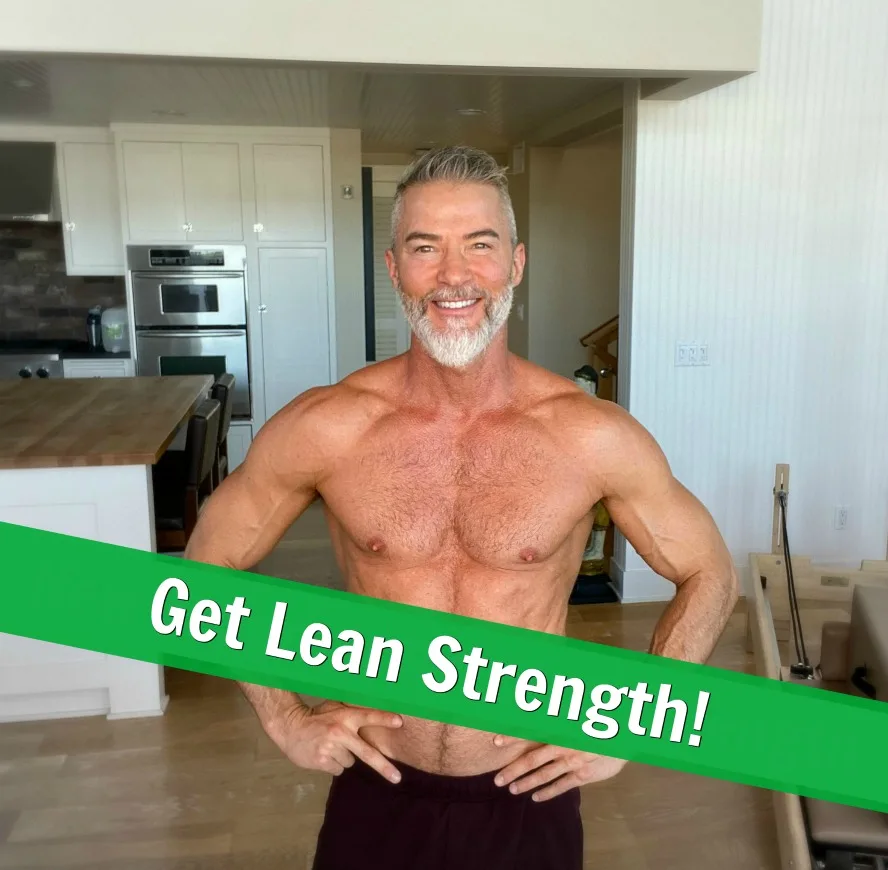
How you relate to food is among the most important of your life’s decisions.
4. Your Willingness to Embrace Internal Change
While at first glance it might seem that life is an external adventure of going different places and doing different things, the real adventure is internal as each of us bravely explores our inner self in the hope of discovering – at last – who we authentically are and what we were meant to do while on earth.
True change is anxiety-producing in the short term, and magnificent in the long-term.
External change is difficult enough – new job, moving to a new home, divorce – but internal change can be even more challenging.
And yet, internal change is the dynamic that provides life with that dimensional, color-filled, numinous quality.
Before the peculiar caterpillar becomes a luminescent butterfly, she must spend some amount of time in a cocoon.
Hidden beliefs will remain rigidly installed inside a child’s psyche and throughout their adult lives – unless they choose to examine them.
The very act of examining them is to begin the process of spreading one’s wings.
Your willingness to change is among the most important of your life’s decisions.
5. Decisions about a Career or Hobby
Everyone needs a career or a hobby – something to feel passionately about.
Passion is the context in which true success occurs.
It might take a bit of exploring, but once someone finds something that they enjoy doing and are good at, it’s important to go from being merely good at it to being great at it.
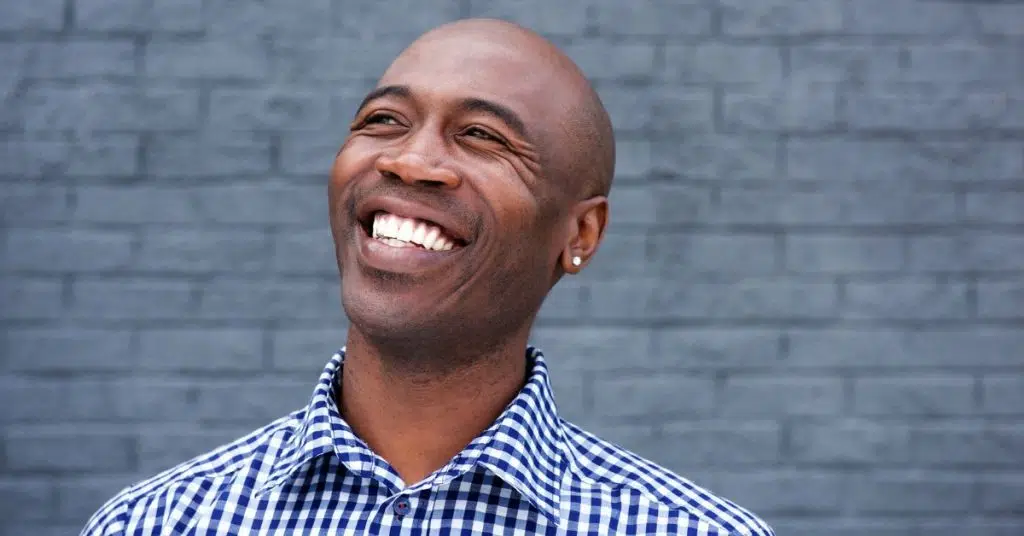
Because mastery takes many hours, it’s almost always a bright idea to choose a career or hobby that aligns beautifully with your brain style, organic talents, skills, and interests. This way, you can experience the sensation of flow when time seems to suspend (and three hours of “work” will feel like three minutes).
6. Your Choice of a Lifemate
Choosing your future spouse is a decision that will impact every area of your life from that point forward.
Few things are more disheartening, or expensive than divorce. So choose well.
Once we’ve made our decision, however, it’s essential to commit fully to the union. Unless a lifemate is repeatedly breaking commitments or behaving in a profoundly unethical or immoral way, it behooves us to continue working on ourselves and our primary relationship.
If all any of us did was trade in our current spouses for “better” ones (whenever we think we may have found a better fit), then marriage would become a ridiculous sham.
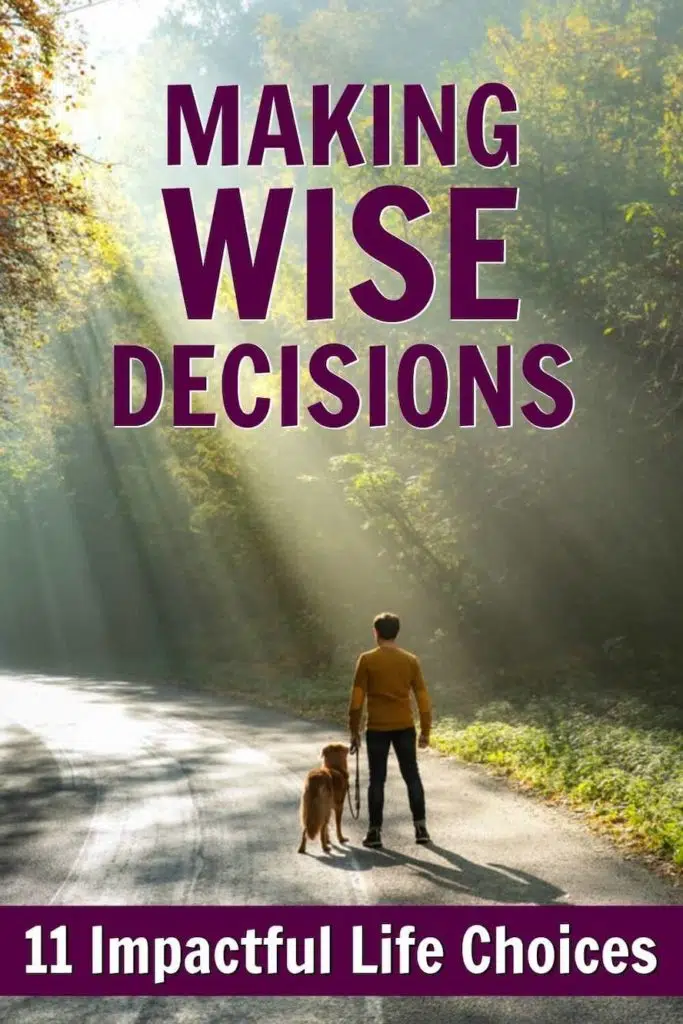
Marriage isn’t a way to try to change your spouse. Why on earth do we marry someone and then try to change them? It makes no sense, creates resentment, and rarely results in a positive change.
Marriage is an opportunity to transform ourselves in the context of a lifelong relationship.
Having said all that, marriage is absolutely not for everyone, and the question of whether or not to travel life’s journey with a primary partner is of utmost importance.
Your choice of a lifemate is among the most important of your life’s decisions.
After these initial six decisions, five more core choices in adulthood that can either make you or break you.
Are you curious about what they are? If so, keep reading.
Some of them may surprise you.
7. Decisions about Whether or Not to Have Kids
Life’s journey begins with our caretakers. As babies, our very lives depend moment-to-moment on the choices of others.
Parenting is unquestionably one of the most demanding jobs in the world.
On one hand, a parent needs to set healthy boundaries and say “no” a lot; this helps a child to feel contained and safe in a chaotic world.
On the other hand, a parent also needs to be deeply interested in a child’s internal world, and demonstrate that interest by listening carefully and authentically to each of their children.
Most people have never really been listened to. Because listening can bring about such powerful healing, it is one of the most beautiful gifts that people can give and receive. When parents listen to children, valuing the children’s feelings as much as their own, they convey to the children the sense that their processes of responding to life are respected. The children can trust themselves to deal with experience and conflict. It is this faith that helps children to move in the world, knowing that they are alright, and feeling that they can deal with whatever comes. There is no greater gift that parents can give than to help their children develop this faith.
— Carl. A Faber
It is very difficult to stay tuned in to a child when one is physically exhausted.
Many parents these days are, understandably, physically and emotionally exhausted – working feverishly to provide for their families in a culture that moves at a relentlessly frantic pace.
What makes the pressure of parenting even more remarkable, beyond the everyday practical matters such as changing diapers and trying to get enough sleep, is that parents sense how crucial the early years are to a child’s development.
Parents know they can’t be perfect, but they desperately wish to be “good-enough” because some part of each parent knows – deep down inside – that two of their child’s most important decisions are made before the age of 6.
Once you have a child, you will forever be a parent, and being the most effective and loving parent you can be will become one of your primary purposes for being on the planet.
Parenting isn’t for everyone.
Ask any parent, and they will tell you that – no matter how prepared they thought they were – parenting is infinitely more complex than they ever imagined. Some will also tell you that it’s the best decision they ever made.
8. Your Relationship with Money
Money isn’t just money.
Money is an expression – just one of many – of the energy system of abundance. For this reason, any conflicts we have with money are, really, conflicts with life itself.
Each person has their own memories and beliefs about money.
Many of these thoughts and feelings about money operate outside our conscious awareness. Yet, to heal and improve our relationship with money, we need to gently (but determinedly) explore our deeper associations with it.
The willingness to look below the surface regarding the topic of money is one of life’s most significant decisions.
9. Decisions about your Relationship with Sexual Energy in Adulthood
Life is peculiar. Any issues we might have, tend to constellate in the area of sexuality.
Try as we might to appear perfect in our everyday lives, shame, repression, and evasion will still present themselves in the sexual part of our lives.
Sexuality is an earthly system of energy that provides us with an opportunity to discover who we truly are and witness all the many aspects of ourselves.

Though sex doesn’t have to be a part of every person’s life in adulthood, for most of us, sensuality is a vital aspect of our earthly experience.
In this sense, every adult in a committed relationship is responsible for being the best lover they can be and continually improving.
This is a decision one makes. It doesn’t happen on its own.
10. Your Relationship to Breath, Movement, and Your Own Physical Body
When you have your health, you have everything. To honor one’s physique is a decision one makes in adulthood.
For too many of us, self-care is an afterthought – something we’ll get to “one day when I have more time.”
And while we’re procrastinating, our bones and muscles weaken.
Celebrating daily that you are able-bodied – by moving intentionally – is a lifestyle decision.
Few things in life are as empowering as taking one’s own health to the next level simply by improving one’s weekly habits.
Are you finding this article interesting or illuminating in any way? I encourage you to share it on social.
11. Decisions about a Search for Invisible Forces
During many points in our adult lives, we are allowed to decide whether or not we will believe in things we cannot actually see.
When we are young, we can’t possibly process everything that happens below the surface of everyday life.
We have to let reality into our minds in gradual doses.
If we were to let reality rush in on us all at once, our psyches might fracture; so life becomes a series of small steps accompanied by the occasional epiphany.
Some of us (in an understandable attempt to manage anxiety) slam down a psychic force shield that prevents us from truly ever seeing anything differently again.
We become so adhered to a particular ideology that we lose our flexibility and our live-and-let-live attitude.
In a sense, spirituality is a decision – a choice to look at life through a different lens.
This new lens sees possibilities – and may lead us to consider that we are all connected in some essential way and here on earth for a reason.
Three ways can be especially helpful in training our minds and hearts to see beyond everyday external events and into the realms of the numinous:
➀ Distinguishing between thoughts and feelings. This takes practice. Often, you will ask someone their opinion, and they will respond by telling you how they feel. Likewise, you will sometimes ask someone how they are feeling and listen as they share their opinion instead.
This is because thoughts and feelings are jumbled together in many people’s minds and seem like the same thing.
When you can clearly differentiate between thoughts and feelings – and use thinking-words deliberately and separately from feeling-words – you will know you are beginning to evolve spiritually.
➁ Searching for patterns. Some people seem self-absorbed – they just get bored or frustrated if the conversation goes on for too long without being about them.
And then there are those who think of themselves as flexible but would be surprised to discover that others experience them as rigid.
What these people have in common, ultimately, is a weakness in their insight – an ability to identify patterns within their own life. When you can look at events in your own life and identify reoccurring patterns in these events – and then identify your responsibility in manifesting these patterns – you will know you are beginning to evolve spiritually.
➂ Imagining a life review at the end of your life. People who do the work of personal growth often find themselves picturing – inside their mind’s eye – a future moment at the end of their lifespan when their entire life will flash before their eyes, and they will be able to re-experience the positive and negative difference that they made in the world during their lifespan.
They imagine they will be able to know viscerally how other people experienced them.
When you begin each day with a clear intention of having the greatest positive impact – to help other people to feel seen and heard – you will know you are beginning to evolve spiritually.
Human adulthood is a rich experience – a journey along which we make many mistakes. Gradually – hopefully – we discover who we truly are.
Each of us is finding his or her own way.
Each of us has an opportunity to make fresh choices.
After choosing the path of intense personal reflection, one is challenged to proactively do the work that creates increased emotional, spiritual, and psychological health.
However, between the ages of 25 to 30, something hugely important happens inside almost every human, as he or she decides whether or not they will undertake the daunting project of ferociously realizing their full and authentic potential.
Each of us tends to follow a developmental timeline, which means that the human lifespan is a series of – often unconscious – psychological choices that build on one another.
These eleven key decisions form the foundation for joyful living.
Make them strategically, and you will be poised to live your healthiest life possible.
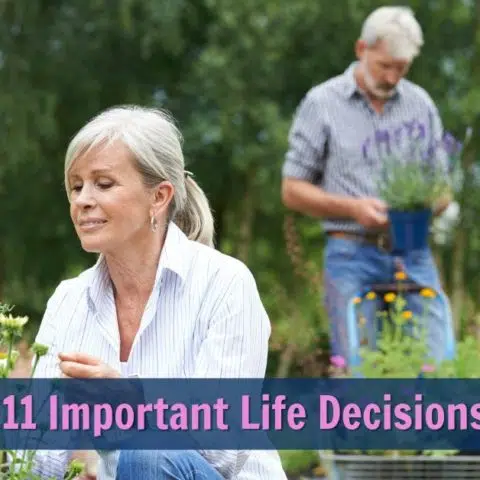
How to Make the 11 Pivotal Decisions that Lead to a Happy Life
Each person makes certain key decisions within their lifespan that will determine their life's unique path. Which of these 11 pivotal decisions have you already made?
Instructions
Here are eleven pivotal decisions made during the human lifespan:
- what love looks like to you
- how to manage your daily anxiety
- your relationship with food
- your willingness to embrace internal change
- your choice of a career or hobby
- your choice of a lifemate
- choice of whether or not to have kids
- your relationship with money
- your relationship with sexual energy
- your relationship with breath, movement, and body
- your search for invisible forces
Notes
Each of these decisions is made by you – intentionally or not.
Understand that there are some aspects to your personality that may have been constructed unconsciously – more as a result of your early childhood experiences than from the essence of who you truly are organically.
Authenticity leads to more joyful experiences. Try to know yourself better each year, avoiding the temptation to switch to cultural autopilot. Make decisions based on who you actually are (it may take you in a different direction from society's well-worn paths).
The decision – of whether or not to walk the path of personal growth and do The Work that presents itself along the way – is unquestionably one of the most significant decisions a person makes during adulthood.
It is never too early or too late to begin a new leg of your life’s journey.
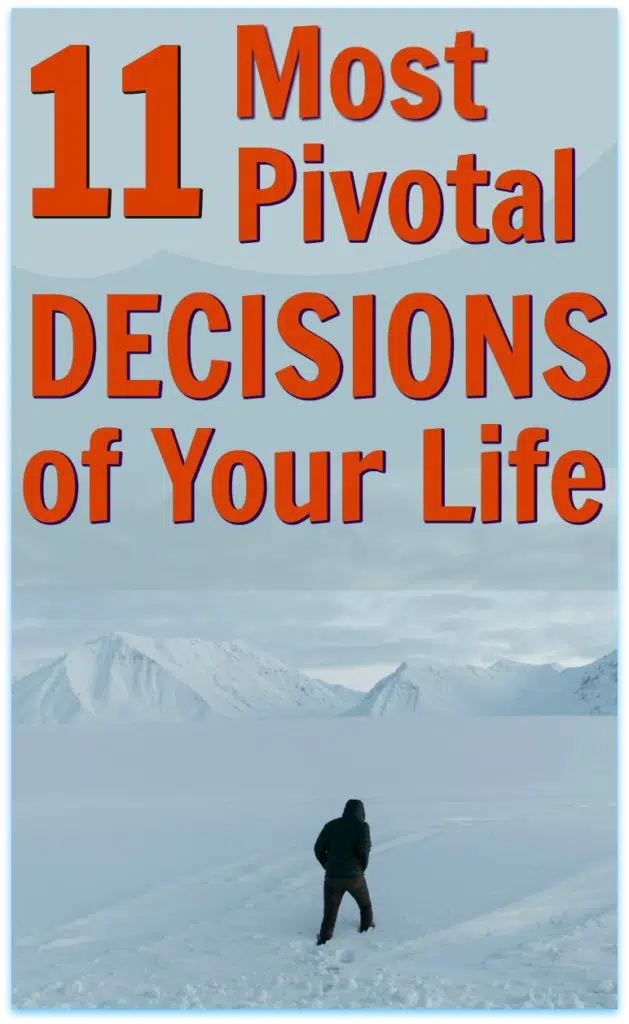
It isn’t essential to make a monumental decision within a specific time window. One can always make a key decision earlier or later in life.
- Have you ever made a decision you later realized did not align with your true spirit? (No matter our past, each of us can re-decide.)
- Which of these core choices have you already made in your adulthood?
- To what degree were those choices made consciously?
- Are you sensing any hidden beliefs within you that, as you become more aware of them, you’d like to modify – so they better reflect who you are today?
Life remains a mysterious journey – and we are each challenged to seek our own answers and make the unique choices that are healthiest for us as individuals.
Recognize Your Life as a Series of Potentially Good Decisions
A young person can seem to have a particular personality one day and then seem completely different the next day.
Children, adolescents, and people in young adulthood do much experimenting – they develop cognitively as they attempt to explore varied aspects of their external world and their inner psyche.
This is a natural part of a young person’s process as they struggle to decide who they are and what persona they will present to the world.
Though each culture has a slightly different developmental timeline, it remains true that as humans move more fully into adulthood, they are presented with an entirely new set of opportunities for potential growth and self-understanding.
Specific key decisions are made throughout the timeline of human life. Make these 11 decisions strategically to experience fulfillment and meaning.
Additional Sources about Making Good Decisions:
“The good-enough caretaker” http://changingminds.org/disciplines/psychoanalysis/concepts/good-enough_mother.htm
“Stages of human development” http://www.psychologistworld.com/behavior/erikson.php
“Differentiation of self” http://www.vermontcenterforfamilystudies.org/about_vcfs/the_eight_concepts_of_bowen_theory/
“What is a developmental psychologist?” http://psychology.about.com/od/psychologycareerprofiles/a/developmental-psychologist.htm
“Common misconceptions about love decisions” http://www.sideroad.com/Relationships/love-myths.html
“Decisions, strokes, and stroking” http://www.internet-of-the-mind.com/time_killer.html
“Self-soothing techniques” http://www.myshrink.com/counseling-theory.php?t_id=115
“Decisions about mating and relating: Dr. Pat Allen’s Want Institute” http://wantistore.com/

5 Scientific Ways to Help Skin Appear Younger • Over Fifty and Fit
Wednesday 28th of August 2019
[…] For example, just try to get a man to shave his face differently (most do it incorrectly). It’s very hard for a fellow to shave in a new way when he’s been doing it the same way his whole adult life. […]
Should I Get a Pilates Reformer for My Home Gym? • Over Fifty and Fit
Sunday 25th of August 2019
[…] back, I think it was indeed wise for me to get the best. It could mean that after only 10 years, it will have been a solid […]
Mat Exercise Program for Strength and Flexibility – A No-Gym Workout
Monday 12th of August 2019
[…] makes hundreds fascinating, is that it appears so simple – yet, the longer you do it the more dimensions to the exercise you […]
The 4 Lifestyle Factors that Determine Posture and Weight
Friday 24th of May 2019
[…] factors are changeable patterns of behavior and ways of living that can significantly influence […]
8 Lifestyle Upgrades Help You Become Leaner and Stronger
Thursday 23rd of May 2019
[…] from among all the lifestyle upgrades – and the one that the least amount of people take advantage […]